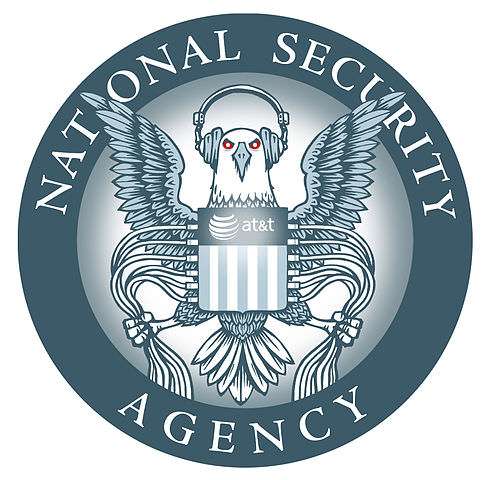NSA Reform Bill Idles in Congress

The USA Freedom Act, designed to rein in the National Security Agency (NSA) dragnet, has been parked in the Judiciary Committee since October. Committee chairmen are waiting for a reactions and recommendations from the White House.
The proposed bill is designed to undermine NSA surveillance by, essentially, making illegal the bulk collection of Americans' data that currently occurs under Section 215 of the USA Patriot Act. TechCrunch explains:
The bill's official summary claims that it will end bulk collection of certain records that is currently based on Section 215?s authority, limiting collection to things that deal directly with terrorism or "clandestine intelligence" that are linked to foreign agents, foreign "power," or suspected foreign agents, or individuals in contact with a foreign "power."
Patriot Act architect Rep. Jim Sensenbrenner (R-Wis.) introduced the USA Freedom Act following revelations of the NSA's extraordinary scope. In a letter to Attorney General Eric Holder, Rep. Sensenbrenner declared, "Seizing phone records of millions of innocent people is excessive and un-American." It has garnered 130 co-sponsors and has the support of the American Civil Liberties Union.
NSA whistle-blower Edward Snowden sparked reform attempts from many corners. Outside of the realm of politics, novel, privacy-enhancing crypto-technologies and ambitious projects to decentralize the internet have gained traction in recent months.
But offical government channels remain the primary means of reform. Last Tuesday's global protests, dubbed The Day We Fight Back, unleashed a torrent of emails and phone calls encouraging Congress to pass the USA Freedom Act. At one point the protests against mass surveillance were "kicking 5,000 calls per hour into Congressional offices," according to TechCrunch. Even so, the protests fell short of grandiose expectations set by the super successful SOPA/PIPA blackout. The protests haven't had an immediate impact on the stalled legislation.
However, the protests signal building momentum. Reformers are optimistic that The USA Freedom Act, or something else, will eventually pass. Greg Nojeim, senior counsel with the Center for Democracy and Technology told The Hill, "I think that the need for change is very clear. It's a question more of when, not whether."
A deadline built into the Patriot Act gives surveillance-happy representatives an incentive to reform quickly. Section 215, the section that authorizes the FISA courts, will expire next summer. Civil liberties advocates are confident that reauthorization won't get enough votes without some sort of preceding modifications.
Read more from Reason.com on the USA Freedom Act.
Editor's Note: As of February 29, 2024, commenting privileges on reason.com posts are limited to Reason Plus subscribers. Past commenters are grandfathered in for a temporary period. Subscribe here to preserve your ability to comment. Your Reason Plus subscription also gives you an ad-free version of reason.com, along with full access to the digital edition and archives of Reason magazine. We request that comments be civil and on-topic. We do not moderate or assume any responsibility for comments, which are owned by the readers who post them. Comments do not represent the views of reason.com or Reason Foundation. We reserve the right to delete any comment and ban commenters for any reason at any time. Comments may only be edited within 5 minutes of posting. Report abuses.
Please to post comments


Committee chairmen are waiting for a reactions and recommendations from the White House.
W.T.F.?
Because, Congress may not act without the King's blessing.
I find it weird that something that clearly has a shitload of Americans upset can't motivate Congress to act. The ACA, which is hugely unpopular. The NSA scandal. I mean, if we're so democratic these days, why?
Because the threat of being thrown out over this stuff is vastly less than it used to be. There's a reason both TEAMs love love love partisanship, and it's because the more you egg your supporters on to be rabid partisans, the less likely they'll ever vote you out because they'll be too terrified of "the other guy" getting in.
Politicians absolutely love partisanship, and this is the reason.
My question was rhetorical, but I agree. Partisanship has left sanity in its dust, along with accountability, ethics, and really anything else one would consider virtuous.
he threat of being thrown out over this stuff is vastly less than it used to be
Really? Was it ever a huge threat?
I find it weird that something that clearly has a shitload of Americans upset can't motivate Congress to act.
Hey, remember TARP?
It clearly had a shitload of Americans upset, yet Congress was motivated to act.
When bankers say jump, Washington says how high?
Civil liberties advocates are confident that reauthorization won't get enough votes without some sort of preceding modifications.
Confident, eh? Are those people ever right?
"'Freedom" means 'freedom to make wrong predictions.'"
This looks like its gonna be really good. Wow.
http://www.Anon-VPN.com
The NSA's already committing billions of felonies on a daily basis, knowing full well that they're not only breaking the law, but violating the constitution. Another act of congress will have no effect at all on these criminals. The only measures that will stop this are to abolish the agency altogether, and prosecute the individuals who commit these crimes.
-jcr
The classified program named "PRISM" began in 2007 and has signed on Microsoft, Yahoo, Google, Facebook, PalTalk, AOL, Skype, YouTube, and Apple. The recent NSA revelations have laid it all out: The NSA is watching us online. Its overreaching surveillance is creating a climate of fear, chills free speech, and violates our basic human rights ? and it operates without any meaningful oversight.
Today, regaining your online Privacy means going Abroad
http://www.americansrighttoprivacy.com